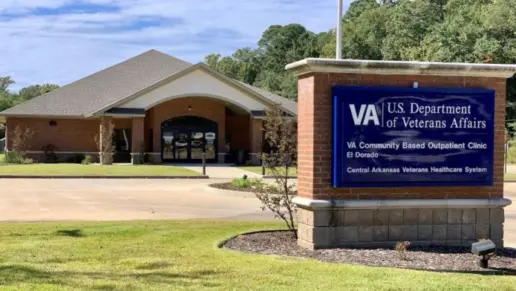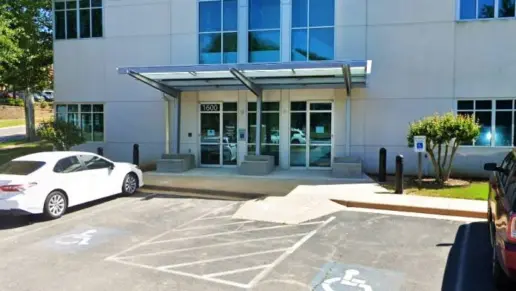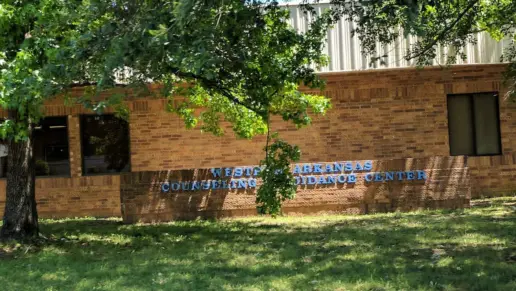Policies changed from day to day from on-site administration. Not enough staff to care for the physical needs of the patients.
About Conway Behavioral Health Hospital
Conway Behavioral Health Hospital is a psychiatric hospital for adolescents and adults in Conway, Arkansas. They offer inpatient treatment as well as partial hospitalization and intensive outpatient services. They accept private insurance, Medicare, Medicaid and self payment.
Their inpatient programs treat youth and adults who need immediate support for a mental health condition. This may also extend to co-occurring disorders, like addiction. As soon as you come in, they’ll perform a comprehensive assessment to understand more about your physical and mental health. After they review your symptoms and medical history, they’ll create a custom treatment plan to fit your needs.
Your plan may include several services designed to improve your condition while you’re living on site. Some of the most common ones include individual, group, and family therapy, medication management, art and music activities, yoga and pet therapy. When you’ve progressed enough to move into outpatient care you’ll attend group therapy sessions that focus on a variety of addiction related topics such as anger management, conflict resolution and healthy communication.
I like that these group meetings help you address some of the underlying issues related to your condition. They also give you the chance to hear from others who are also in recovery and share advice. All of their groups are led by registered clinicians or masters level nurses.
Some clients say the team here is kind and sympathetic toward everyone’s needs. They truly care about the people in their program and want to see them succeed. However, others report negative interactions with some of the people on staff.
Rehab Score
Gallery
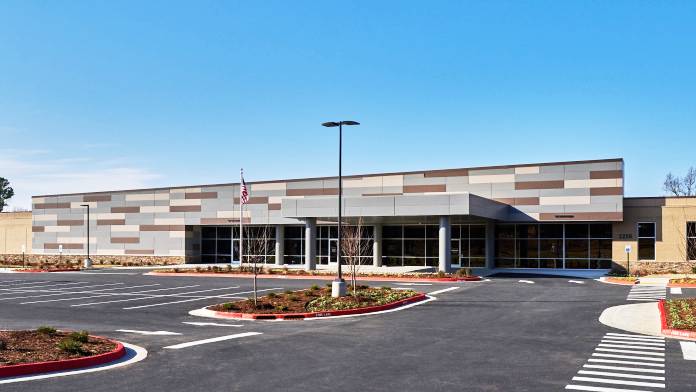
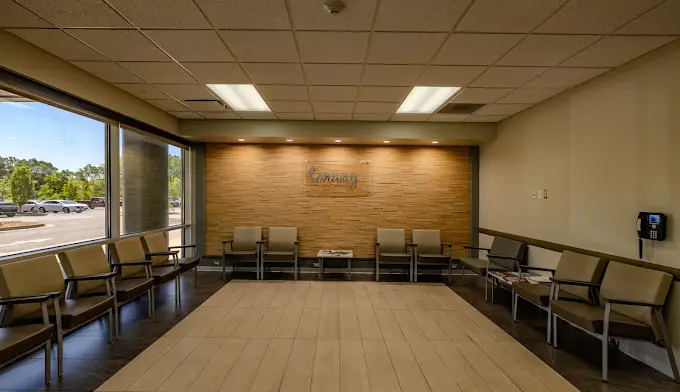
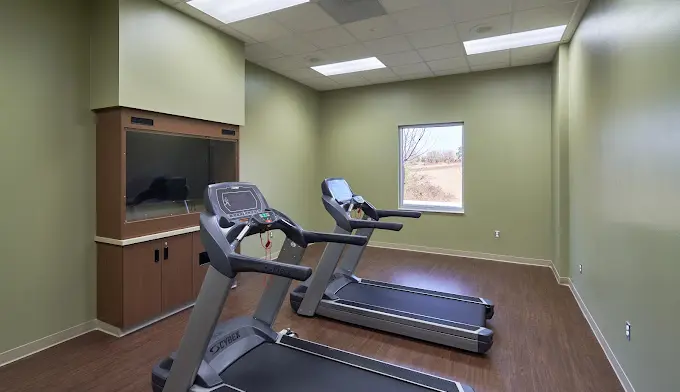
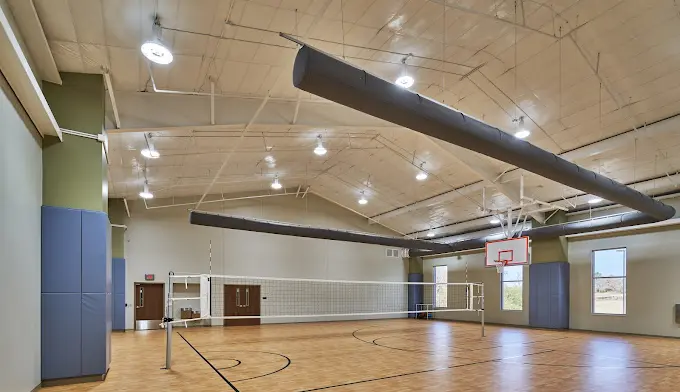
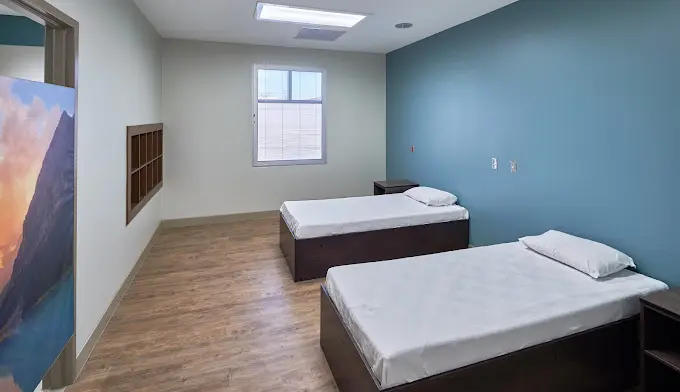
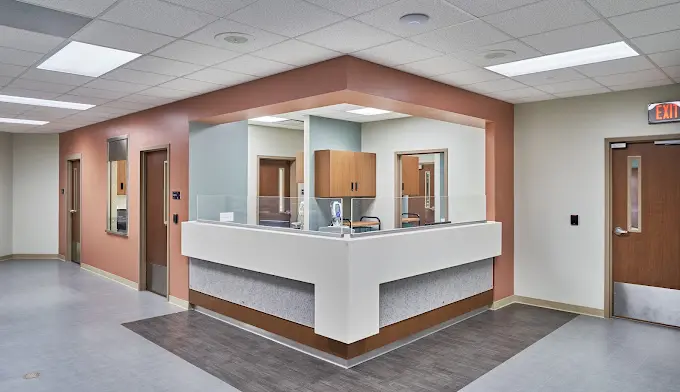
Location
Accepted Insurance
Other Forms of Payment
Private insurance refers to any kind of healthcare coverage that isn't from the state or federal government. This includes individual and family plans offered by an employer or purchased from the Insurance Marketplace. Every plan will have different requirements and out of pocket costs so be sure to get the full details before you start treatment.
Self-pay involves paying for treatment out of your own pocket. You can use savings or credit, get a personal loan, or receive help from family and friends to fund your treatment. If you don't have insurance or your insurance plan doesn't cover a specific program, self-pay can help ensure you still get the care you need.
Financial aid can take many forms. Centers may have grants or scholarships available to clients who meet eligibility requirements. Programs that receive SAMHSA grants may have financial aid available for those who need treatment as well. Grants and scholarships can help you pai for treatment without having to repay.
Medicare is a federal program that provides health insurance for those 65 and older. It also serves people under 65 with chronic and disabling health challenges. To use Medicare for addiction treatment you need to find a program that accepts Medicare and is in network with your plan. Out of pocket costs and preauthorization requirements vary, so always check with your provider.
Military members, veterans, and eligible dependents have access to specific insurance programs that help them get the care they need. TRICARE and VA insurance can help you access low cost or no cost addiction and mental health treatment. Programs that accept military insurance often have targeted treatment focused on the unique challenges military members, veterans, and their families face.
Medicaid is a state based program that helps lower-income individuals and families pay for healthcare. Medicaid covers addiction treatment so those enrolled can use their coverage to pay for rehab. When a program accepts Medicaid the client often pays very little or nothing out of their own pocket.
Addiction Treatments
Levels of Care
Treatments
Many of those suffering from a mental health concern also suffer from substance abuse issues. Dual diagnosis or co-occurring disorders is the condition in which the individual suffer from both illnesses. Conway Behavioral Health Hospital specializes in mental health concerns and co-occurring substance abuse issues.
Mental health rehabs focus on helping individuals recover from mental illnesses like bipolar disorder, clinical depression, anxiety disorders, schizophrenia, and more. Mental health professionals at these facilities are trained to understand and treat mental health issues, both in individual and group settings.
Programs




Clinical Services
Cognitive Behavioral Therapy (CBT) is a therapy modality that focuses on the relationship between one's thoughts, feelings, and behaviors. It is used to establish and allow for healthy responses to thoughts and feelings (instead of unhealthy responses, like using drugs or alcohol). CBT has been proven effective for recovering addicts of all kinds, and is used to strengthen a patient's own self-awareness and ability to self-regulate. CBT allows individuals to monitor their own emotional state, become more adept at communicating with others, and manage stress without needing to engage in substance abuse.
Dialectical Behavior Therapy (DBT) is a modified form of Cognitive Behavioral Therapy (CBT), a treatment designed to help people understand and ultimately affect the relationship between their thoughts, feelings, and behaviors. DBT is often used for individuals who struggle with self-harm behaviors, such as self-mutilation (cutting) and suicidal thoughts, urges, or attempts. It has been proven clinically effective for those who struggle with out-of-control emotions and mental health illnesses like Borderline Personality Disorder.
Group therapy is any therapeutic work that happens in a group (not one-on-one). There are a number of different group therapy modalities, including support groups, experiential therapy, psycho-education, and more. Group therapy involves treatment as well as processing interaction between group members.
In individual therapy, a patient meets one-on-one with a trained psychologist or counselor. Therapy is a pivotal part of effective substance abuse treatment, as it often covers root causes of addiction, including challenges faced by the patient in their social, family, and work/school life.
If you participate in couples therapy, your therapist may use one or more methods to help you improve communication and resolve conflict. These techniques can include emotionally focused therapy, psychodynamic couple's therapy, and cognitive behavioral therapy.
Research clearly demonstrates that recovery is far more successful and sustainable when loved ones like family members participate in rehab and substance abuse treatment. Genetic factors may be at play when it comes to drug and alcohol addiction, as well as mental health issues. Family dynamics often play a critical role in addiction triggers, and if properly educated, family members can be a strong source of support when it comes to rehabilitation.
Amenities
-
Private Setting
Accreditations

The Joint Commission, formerly known as JCAHO, is a nonprofit organization that accredits rehab organizations and programs. Founded in 1951, the Joint Commision's mission is to improve the quality of patient care and demonstrating the quality of patient care.
Joint Commission Accreditation: Yes
Accreditation Number: 617821
Contact Information
2255 Sturgis Rd
Conway, AR 72034









